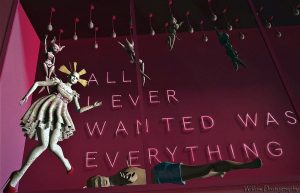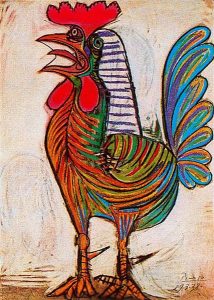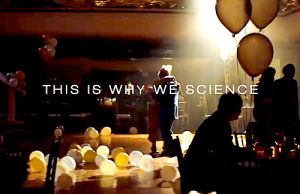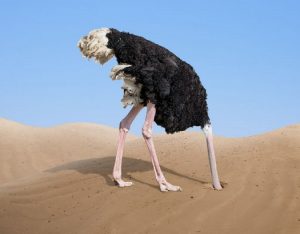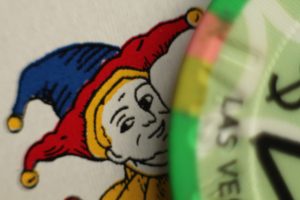provocations
Image – iStockphoto: Valery Ambartsumian
‘The Desire To Change Everything’
In an edition of the interview series First Draft: A Dialogue of Writing excerpted at Literary Hub, the Chilean-American author Isabel Allende says to Mitzi Rapkin, “Literature can maybe change minds, but few people read.
Provocations graphic by Liam Walsh
“Few people allow themselves to be influenced or changed by books,” she says. “It takes a book sometimes decades, sometimes centuries, to have an effect, while journalism is very immediate and very powerful. You have minutes of something on TV, and you can create much more impact than a book can do in many, many years.”
Allende–who has more than 23 books to her name, 74 million copies in 40 languages–is speaking, it turns out, not only as the author we know but as a journalist.
When “the great boom of Latin American literature was a bunch of men” early in her career, she says, she felt she was likelier to be a writer in journalism than in literature.
“I found a job in a feminine, very avant-garde magazine,” she says, “that started to deal with feminism early on when it wasn’t an issue in Chile yet. I had found my perfect niche, and that’s how I began writing. I wasn’t thinking that I was giving a voice to women. It was just random energy and the wish—the desire—to change everything, to change the society, the culture, the religion, everything.”
And it might surprise readers to learn now that she sees books as a slow medium, if you will, by comparison to journalism.
One reason this has resonance today, of course, is that there are so many political books going to market, covering the fray from both sides of a lot of aisles, not just from the classic conservative and liberal stances. Penguin Press’ January 21 release of Philip Rucker and Carol Leonnig’s A Very Stable Genius arrived at No. 1 in new releases at Amazon, not just in politics but overall.
And yet that, of course, is a book by journalists. Rucker and Leonnig are at The Washington Post. And just making such books current by the time they’re out is no walk through the park. Authors talk of adding new last chapters and addenda at the last moment to account for the latest complication (or tweet) in a current-affairs context that just won’t stand still.
One of the most prominent examples of the moment in direct and timely political content is a memoir that’s almost writing the political scene rather than vice-versa. Leaks and passage descriptions from the manuscript of the former White House national security adviser John Bolton’s The Room Where It Happened (Simon & Schuster, coming March 17) are driving much of the discussion around the impeachment proceedings, particularly the question of new witnesses rejected by Senate Republicans for the trial.
Nevertheless, I’m not sure I agree with Allende in her assessment of the relative impact–or the relative speed of impact–of journalism over books, even literature.
And that’s my provocation for you today.
‘The Beginning of Terror’
Among Michael Cunningham’s novels, Read More
Red Bull Cliff Diving in Bilbao on 13 September 2019 from the Zubizuri near the Guggenheim. Image: #RedBullCliffDiving
Artistry in High Places
As I was headed to the airport in Bilbao a week ago tomorrow to fly to Amsterdam, my taxi driver languidly pointed to the left and said, “Calatrava.”
I looked over at the Zubizuri, as it’s called by the Basques, the “White Bridge” designed by Santiago as a kind of triumphal arch to Frank Gehry’s incredible Bilbao Guggenheim. What a lucky river is the Nervion, I thought to myself, with this soaring bridge and one of the most celebrated art museum designs in the world.
Then the cabby said, “Red Bull.”
“Sorry?” I asked her.
“Red Bull,” she said. “I’ll slow down so you can see.”
They were cliff diving off the Zubizuri in a #RedBullCliffDiving competition that’s now reached the Top 3 countdown for the male competitors in Spain. Gorgeous Basque-country afternoon, massive crowds, spectacular setting, and a lot of clearly experienced drop-dead physiques flying off that bridge, festooned with logos and signage for Red Bull. Here’s the site. View it with caution: You may never get back to your writing.
The competition, which moves to various parts of the world, has been in play since 2009. As one wag running the Red Bull twitter account put it about the Bilbao session last weekend, it reminds you that all art isn’t inside the Guggenheim.
https://twitter.com/cliffdiving/status/1173147156548657152
Screening Up
The reason I found myself spending part of a Friday with near-naked athletes in Bilbao–no complaints about that–is that I was asked to speak to the Union of Basque Writers in a conference expertly organized by Beatriz Celaya. It turns out that the program draws publishers and editors as well as authors (which I like). Planeta was there, as was Penguin Random House Grupo Editorial, the Stockholm-based audio subscription service Storytel, and many more companies and independent writers–a good mix with super questions and comments.
And I wanted you all with me. Because I know that cliff diving is your life, as it is mine. No, actually, I wanted you there because the last time I tried this idea out on you, I got lots of pushback. But I found an author in our audience in Spain who said it all to me this time.
We’d started talking about the “books to film” trend, as it’s called. By coincidence, there’s a significant television festival in nearby San Sebastian each year, and that might have something to do with the writers’ sensitivity to this. But this author explained that he’d taken some courses, done some studying to add a few skills to what annoying human resources people call your toolkit, and he now is juggling the reactions of producers to three TV series for which he’s written television pilots.
“I may end up being a show runner on all three shows, the way it’s looking,” he said.
Red Bull Cliff Diving in Bilbao on 14 September 2019 from the Zubizuri near the Guggenheim. Image: #RedBullCliffDiving
There was a lot of appreciative […]
Read MoreImage by thecrypt
I had the pleasure of attending this year’s National Book Festival in Washington, DC, and as a historical novelist, of course I gravitated to the sessions on historical fiction. Hundreds of audience members flocked to hear perspectives from Philippa Gregory and Margaret George in one session and Roxana Robinson and Louis Bayard in another. Most of the readers attending appeared grateful and excited to be there. Their questions were respectful and gently curious: Can you tell us more about your writing process? What’s your perspective on LGBTQ characters in historical fiction? Have you heard from the scholars of the historical figure you wrote about? Do you do mostly primary or secondary research?
And then there was the other guy.
In his question (which he prefaced not as a question, but a “peeve”), he basically challenged the entire idea of historical fiction, saying that “having to wonder what’s real and what’s not” when reading historical fiction “interferes with [his] enjoyment as a reader.” Even when addressing the author who does not deviate from the historical record in any way, only adding dialogue and internal state of mind when fictionalizing the real people and events of her story, he still said, “Why not change the names? You basically made the whole thing up anyway!”
Had I been on stage, I would have responded with a possibly ungenerous answer: well, if you don’t like historical fiction, don’t read it. That’s what nonfiction is for.
But the authors on stage took his question seriously, and their answers were well thought-out. Louis Bayard pointed out that the idea of a single objective “truth” is kind of bunk anyway, and that Shakespeare paid little, if any, attention to the historical record when writing “Richard III.”
It remains an ongoing question in historical fiction — how much of historical fiction should be history and how much should be fiction? — and every author answers it in a different way. Personally, I regard the gaps in the historical record as an invitation, and I love that historical fiction gives us a deeper window into people’s humanity than most nonfiction can provide. As long as the author makes it clear, usually in an author’s note, where they’ve chosen to substantially diverge from what’s documented, I think it’s pretty much all fair game.
Read MoreImage – iStockphoto: Jelena 990
With All Due Respect to Agatha and Angela
I trust that it’s needless to say that the shooting incidents of the last couple of weeks in the States have rightly refocused the attention of many Americans–though not enough Americans–on gun violence.
I can offer you a few non-politicized, undeniable facts, thanks to the work of the independent nonprofit news organization called The Trace.
If you’d like more specifics, here’s a good article with charts. The gun lobby in this country has suppressed the kind of research that develops this information. You may find it illuminating.
Provocations graphic by Liam Walsh
My provocation for you today is about homicide in literature–and, of course, associated entertainments, but let’s focus on books because that’s what we’re about here.
We have a long, long history as writers and as a publishing industry, with crime fiction. And I’ll confess that I’ve never liked that vast set of genres and sub-genres. That’s a personal bias and I want to be sure that I present it to you so you can count out the correct number of grains of salt.
I find crime repulsive and criminals disgusting. I revere the best of our police forces in real life–what shows of heroism we’ve seen in tactical responses to the recent inexcusable attacks! But if I never read another police-procedural again in my life, that will be just fine. I find quirky detectives ridiculous and I simply won’t watch or read something that involves one of these sleuths “coming out of retirement for one last case.” Like cowboy westerns and doctor shows, I really wish we could give this whole thing a rest.
However, I can also assure you that I see murder-mystery writing as one of the most demanding challenges of the canon, not least because readers seem so obsessed with finding flaws and guessing culpability–and the ways and means of taking human life–despite the author’s best efforts to conceal things.
And among the crime-writing authors I know, the cozy mystery folks are among the hardest-working, best-organized, most assiduously conscious fiction writers I’ve ever encountered. By that, I mean that they know their stuff, they know how they make it, and they know what works and what doesn’t with a precision that would make a literary writer weep.
So please understand that my comments here today are in no way, shape, or format meant to suggest that our crime-fiction and particularly cozy-murder writers are anything but superb professionals and great people. If you write this literature, do not feel criticized here. In fact, please, help us think about this with your experienced head.
What I do think we need to ask ourselves is how much crime fiction and especially the more genteel, soft elements of that world may […]
Read MoreIn Puerto de Mogan on Gran Canaria. Image – iStockphoto: Mustang
The Elusive Chapters of Summer
Part confession and part inquiry, today’s little provocation for you is about a long-running fantasy I’ve nourished since my late teens: the idea of a summer vacation on which you make big progress on your work-in-progress.
Being born into a family of tireless workers, I was quite young when I seized on the phrase “working vacation.”
I tweaked it with the concept of getting off to some picturesque spot in the world where I’d spend a week churning out about a chapter an hour while fabled breezes ruffled my hair and cooled my busy brow. A writing vacation.
Sometimes I’d try one of those “writing retreats” in a stately home next to some really good vineyards. You can imagine how well that worked out. Inevitably, the retreat trips were the worst, even if not near the grapes, because they’re always run by strangely punitive “instructors” whose work no one has ever read and who over-schedule everything to within an inch of your sanity.
No, going it alone always proved the best idea. And surely, I reasoned, I’d return, triumphant, a full manuscript in hand, ready for light edits and then quick distribution to adoring agents. So I tried this writing vacation thing
The part I got right was about the hair ruffling, My hair was really very well ruffled by some of the most fabled breezes in the world–off the Atlantic, the Mediterranean, the Ionian, the Aegean, and a couple of disturbingly deep lakes.
But the writing?
Read MoreWhat kind of writing goals do you set? Word count, revised pages, finished drafts, submitted stories, queried agents? These are examples of goals driven by measurable performance. Research has shown that when “a person is committed to the goal, has the requisite ability to attain it, and does not have conflicting goals, there is a positive, linear relationship between goal difficulty and task performance.” But is there more to succeeding than setting clear, attainable goals you’re committed to?
Writing is rarely as straightforward as setting a goal, working, and achieving it. You can set a solid goal. So why do you end up stuck at a blank sheet of paper or that lone, blinking cursor in a new document? There is a huge gap between a performance goal such as “write 1,000 words” and finishing a draft of a novel. Something as complex as a novel is more than a collection of word count goals. To address this gap, we need to address the shortcomings of performance goals.
The Perils of Performance Goals Like Word Count
We set performance goals because it’s easy to know when we’ve reached them. 1,000 words is 1,000 words. But a concrete ending can obscures a less clear beginning or the steps to get you to that clear ending.
“Performance goals can in fact impede performance. This [is] particularly the case when the task is highly complex or the goal is perceived as very challenging, and where the individual is not skilled or is low in self efficacy, or where resources are scarce.”
Likewise, from “New Directions in Goal-Setting Theory”:
“Focusing on reaching a specific performance outcome on a new, complex task can lead to ‘‘tunnel vision’’—a focus on reaching the goal rather than on acquiring the skills required to reach it.”
So how do we avoid tunnel vision and address the real complexity of what we want to accomplish in our writing? We need to think bigger than word count or other things that are easily measured. We need to make room for learning goals.
The Power of Learning Goals
What exactly is a learning goal? Wikipedia’s introduction to goal setting defines learning goals:
“There are times when having specific goals is not a best option; this is the case when the goal requires new skills or knowledge. … In situations like this, the best option is to set a learning goal. A learning goal is a generalized goal to achieve knowledge in a certain topic or field.”
Doesn’t each piece of writing require new skills or knowledge? Whether you’re reporting on a facet of our shared reality or inventing a new one, there’s always something to learn (and teach to your readers).
Unlike word count, learning goals relieve the pressure of immediate output. Focusing too much on outcomes and not giving things time are among the limitations of goal setting:
“Goal setting may have the drawback of inhibiting implicit learning: goal setting may encourage simple focus on an outcome without openness to exploration, understanding, or growth. A solution to this limitation […]
Read MorePlease welcome Lisa Barr to WU today!
Lisa is the author of the upcoming novel, THE UNBREAKABLES (Harper) releasing on June 4th. The book promises to be, “A delicious, sharp novel about a woman who jets off to France after her perfect marriage collapses, putting the broken pieces of herself back together while rediscovering her own joie de vivre—a lust for life, art, and steamy sex.” Publishers Weekly said of the book:
“This exquisitely wrought novel will appeal to readers who believe in the redemption of new beginnings.”
The story itself creates the jumping-off point for today’s blog post, because it wasn’t entirely made up. How did Lisa turn a real-life event into something fit for the fiction section of the bookstore? Read on! But first, a bit more about Lisa, from her bio:
Lisa’s debut, FUGITIVE COLORS–a suspenseful tale of stolen art, love, lust, deception and revenge on the “eve” of WWII–won the IPPY gold medal for “Best Literary Fiction 2014”, first prize at The Hollywood Film Festival (Opus Magnum Discovery Award), and was named on “HEEB” magazine’s “Top 10” best books list. According to Booklist, FUGITIVE COLORS is “masterfully conceived and crafted … a dazzling debut novel that has it all: passion and jealousy, intrigue and danger”.
Earning her master’s degree from the Medill School of Journalism, Northwestern University, Lisa has served as an editor for The Jerusalem Post, managing editor of Today’s Chicago Woman, managing editor of Moment magazine, and as an editor/reporter for the Chicago Sun-Times.
For more, visit lisabarr.com.
When Your Story Hits Too Close to Home
In 2002, this happened. My first husband, to whom I was married nine years, disappeared. He left me with two little girls, then five and three, with just 67 cents in my bank account. We have not seen nor heard from him since then. Oh, the story …. the twists and turns … along this nightmare, from despair to survival. Once our lives had finally quieted down, I knew I wanted to write about it. But this tale was not just my life, but my girls’ lives … could I write it? Should I? What would be the consequences? So I waited until my daughters were old enough to really understand. “Can I write our story?” I asked them both. “Yes,” they replied. So I spent the next year and a half writing a memoir. Once I finished it, my eldest who was entering high school at the time, said, “I changed my mind, Mommy. Please don’t write that book – it’s so embarrassing.” And so it goes … the memoir was shelved, but not the story, not the impact of what it did to me, did to us. The written story was dead, but the emotions were still very much alive and I used them within other works.
Flash forward to 2017… a close friend’s husband betrayed her in the worst possible way. “Can I write this story?” I asked her, intending to fictionalize it but keep the soul, the emotional intensity. “Yes,” she said generously, but then I saw the fear in her eyes. “I will show it to you,” I promised. “I will work […]
Read MorePainting of Dido Elizabeth Belle (l) and her cousin Elizabeth Murray (r), circa 1778
I start this call to action with a confession. I began writing my first historical novel, The Magician’s Lie, around 2009. After multiple rewrites, working with my agent and an outside editor, we finally sold the novel to Sourcebooks in 2013. After more work and more rewriting, the book was published in January 2015. I estimate I must have done no fewer than 10 complete revisions, in which I overhauled nearly every aspect of the story: plot, character, timeline, scene breaks, chapter breaks, language, perspective, and countless other elements of the novel.
And at no point during that process do I ever remember thinking, You know, maybe there should be a character in this book who isn’t white.
Now, this seems vaguely ridiculous. White privilege is a reason, not an excuse, and as an American-born white writer I have benefited from that privilege. I’ve had the luxury of not thinking about things like, oh, whether this aspect of my writing reflected either today’s world or the world in which my story was set. I haven’t had to consider whether agents or editors will be interested in stories about people who look like me: overwhelmingly, they look like me.
If you’ve been following publishing at all, you probably know there’s an active, powerful #ownvoices movement advocating for stories in which the protagonist and the author share a marginalized identity. And that’s awesome.
What I want to advocate for here is something different. Not every writer is equipped to take on a book with a marginalized protagonist; not everyone has that kind of story to tell. As allies, white writers can support, promote, purchase and read stories that bring racial and ethnic diversity to the fore. Same goes for stories from other marginalized communities and identities. Find them, love them, talk about them. It’s all the same stuff we ask our readers to do for our stories; it’s the least we can do to encourage stories we want to see in the world.
So if I’m not advocating writing stories from communities outside the mainstream, what do I want historical fiction writers who look like me to do?
More work. More research. Look, I know there’s already a lot. We’re spending hours looking up the menu at Delmonico’s in 1905 and finding exactly the right smart cloche for our fashion-forward 1923 flapper to slap onto her head. We’re digging up slang, addresses, music, architecture and more. The best historical fiction pulls the reader into a world so well-drawn it feels like we’re there with the characters, seeing and tasting and touching that world.
And if you haven’t considered that not every face in that world you’re writing about is white, it’s time to consider it.
I use “white” as shorthand in that sentence but it’s about far more than race, obviously. Neurodiversity. Disability. Gender expression. So much more. People with marginalized identities have always existed; history books and Hollywood have created the illusion that they didn’t. Especially in the past few years, historical fiction has become a key tool to make the untold stories […]
Read MoreHappy April Fools’ Day! In honor of the holiday, I’ll be giving highly prescriptive, condescending writing advice that sets arbitrary limits, reinforces inflexible constraints, and just generally crushes your creative spirit. For fools, from a fool.
*throws confetti, the most foolish of celebration tactics*


